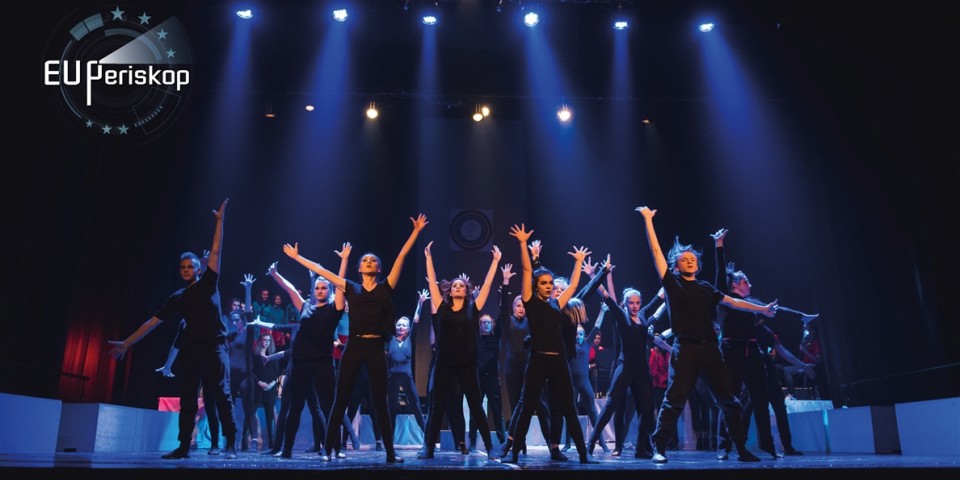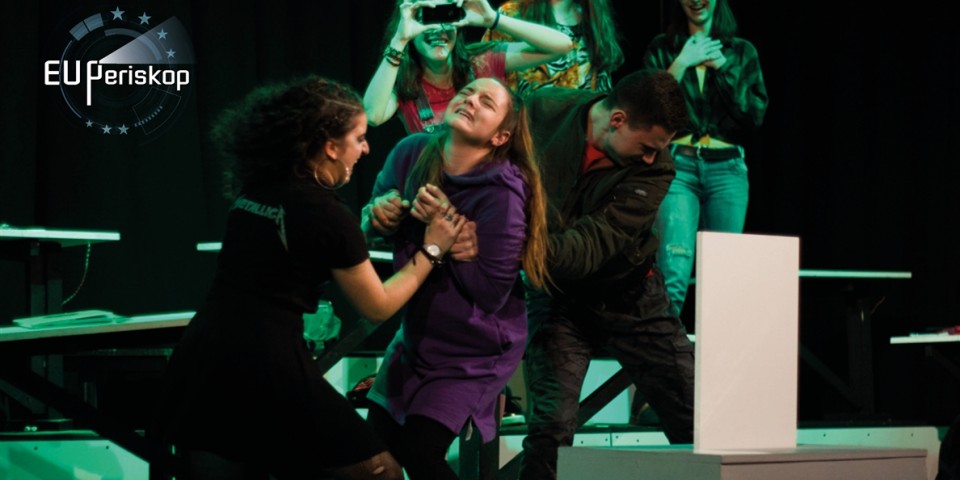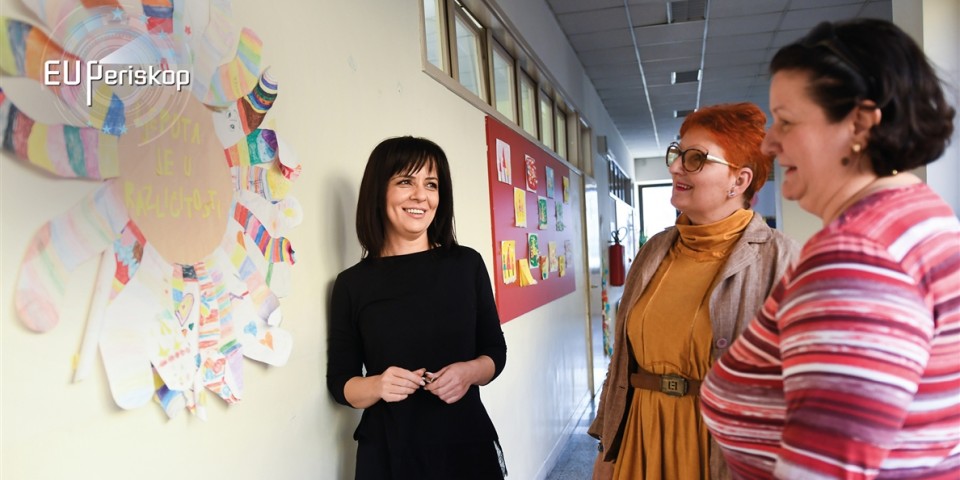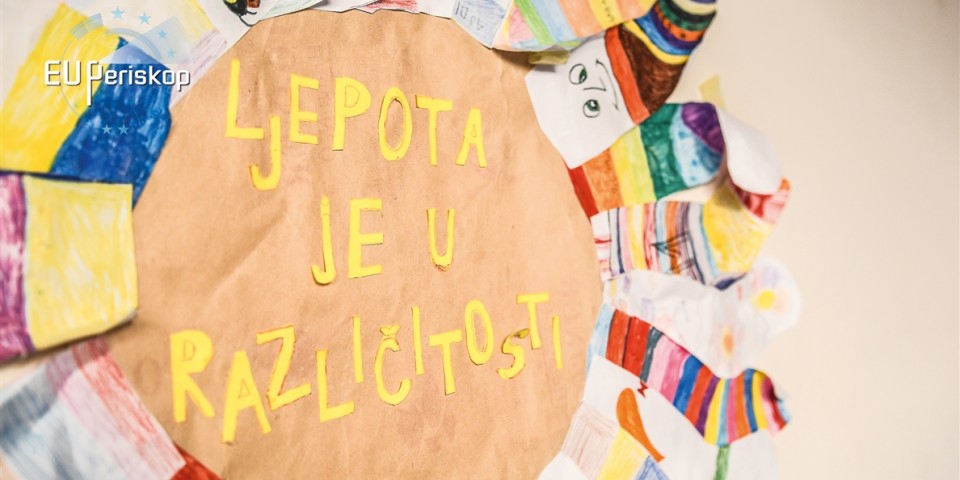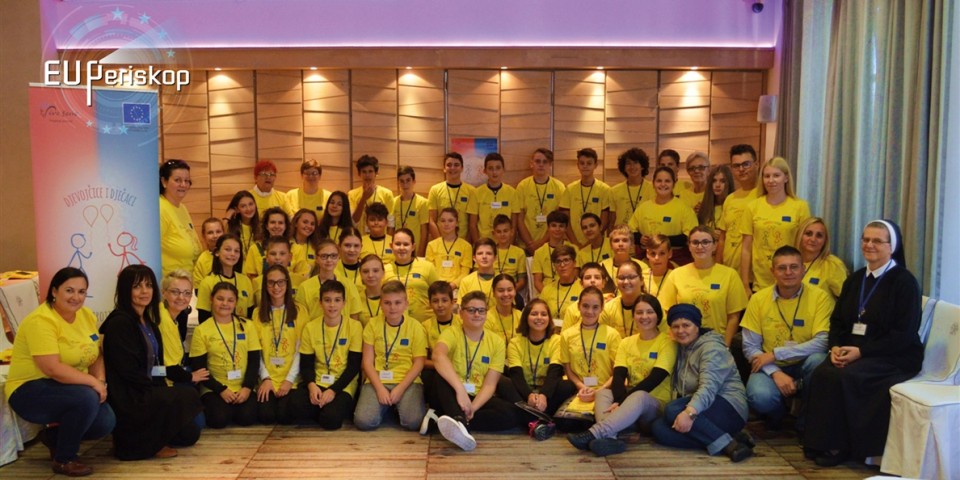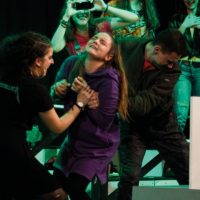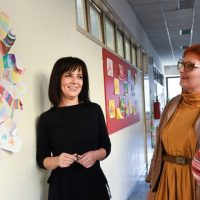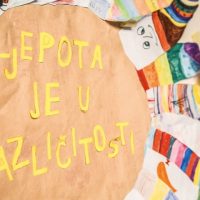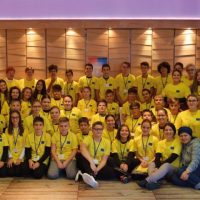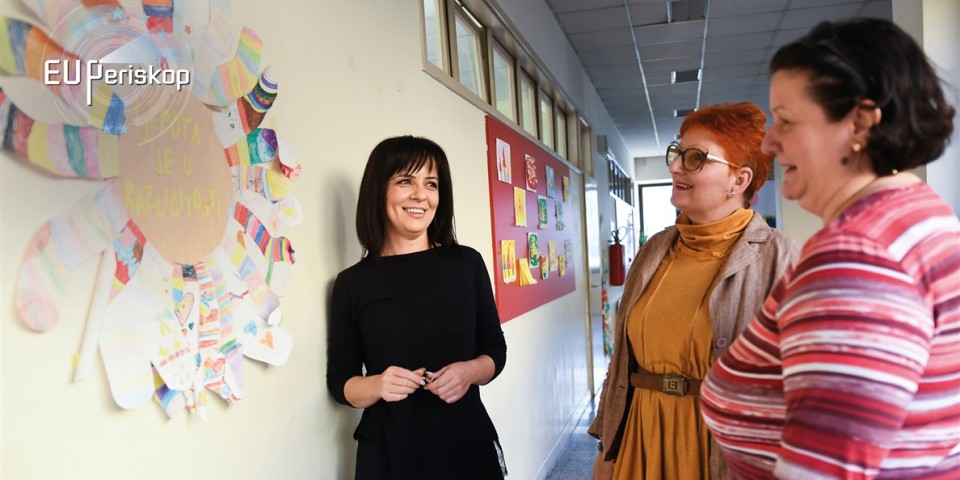
Young Peer Educators Overcoming Violence
Trust, compassion and empathy, belief that you can make your dreams come true and the support of your community are crucial to the optimal development of young people. Faced with […]
Trust, compassion and empathy, belief that you can make your dreams come true and the support of your community are crucial to the optimal development of young people. Faced with different forms of verbal, physical and online violence on a daily basis, which they often fail to recognise, generations of young persons across Bosnia and Herzegovina are growing up believing that violence is the only answer to violence. A group of young educators, educated in skills development, nonviolent communication and violence prevention techniques, firmly believe that trust and open communication with their peers is the best prevention tool.
The European Union supported the training and skills development of these young educators of tomorrow through a three-year long project Girls and boys vocal against gender based violence to enable pupils and youth to learn from each other and, through professional guidance for pedagogues, teachers, parents and local communities, be empowered to recognise violence and help their peers.
“In the first part of the project they worked on self-realisation and forming of better connections within groups, then we proceeded to workshops on nonviolent communication and gender equality. Due to great interest from pupils, we chose 41 peer educators (we planned for 30) who have so far held 15 workshops in their schools. The plan is to continue with the workshops even after the project is completed,” says Selma Bajramović from Vive Žene.
Pedagogues were included in the project activities from the beginning so they can follow the progress and new skills and knowledge of the students. The experts point out that adolescence is a crucial period in the life of a young person because perception of authority is changed. The authority held by parents, teachers and the community is being replaced with their peers, whose opinion becomes very important. By empowering and enabling peer educators to recognise violence and be a reliable contact for notifying cases of violence is crucial to the further development of adolescents.
Merima, one of the peer educators, gladly remembers the intense and interactive workshops she attended with her friends. “I learned a lot, how to react and help a person who experiences violence. Now we recognise different forms of violence much better, even some we were not aware of. Violence should never be answered with violence because it can only lead to even greater problems,” says the young educator.
Although most adolescents are not aware of nor realise that their usual games or manners of communication may in fact be violent, through the workshops with their peers they received advice on how to recognise and respond to violence. The continuity of the project and the intensity of workshops contributed to development of self-realisation, group connectivity and nonviolent communication among the pupils. “The pupils were thrilled to have an opportunity to be workshop leaders. They practiced and prepared the workshops and it truly is not easy to hold the attention of an entire school class. Practical experience was very important to them. When we were first started they did not believe they will be able to do it,” says Stela Đug.
By including teachers and pedagogues in the success achieved by their students, the peer educators will continue with their education after the project is finalised. Equipped with new skills and knowledge, students will follow practical guidelines they developed during the project to discuss with their peers and parents how to recognise and prevent further violence.
“It is extremely important to talk about prevention of peer violence. What we achieved in this project truly has not happened in any other project or programme we have been involved with. An entire generation was involved and now they are recognised as peer educators and students can talk to them freely,” says Nermina Tursić Selmanović, pedagogue in Sjenjak Primary School in Tuzla. Proud of the fact that the generation in question has the lowest number of violent cases, the pedagogues stresses that students managed to help each other and warn against non-acceptable behaviour before talking to adults.
Peer educators are definitely vocal in their school and thanks to the project they had an opportunity to be vocal against violence even on a theatre stage. Cooperating with Tuzla Youth Theatre, six theatre plays were held, during which the youth had an opportunity to act out their own experience or instances of cases of violence experienced by someone they know. “We all gave our best to reach our goal, and the theatres were full, which gave us great encouragement. Our biggest reward was the booming applause. I have always liked acting and am very happy to be a part of these plays,” says one young actress.
Through interactive workshops, the actors had an opportunity to discuss with the audience the problems tackled in the plays. In this manner, the audience consisting of their peers, teachers and parents were directly involved in the plays and talked about the problems adolescents face every day. Considering that over 4,000 persons attended their performances, all project participants are extremely pleased with the results achieved as well as with the reactions from the actors and audience.
The new generations of peer educators on violence prevention mechanisms are definitely a positive example of cooperation between local communities and the educational system, as is the involvement of adolescents in the realisation of project activities. By empowering young adults to be supportive and mentor future generations, these girls and boys warn that we all need to be vocal against violence.

